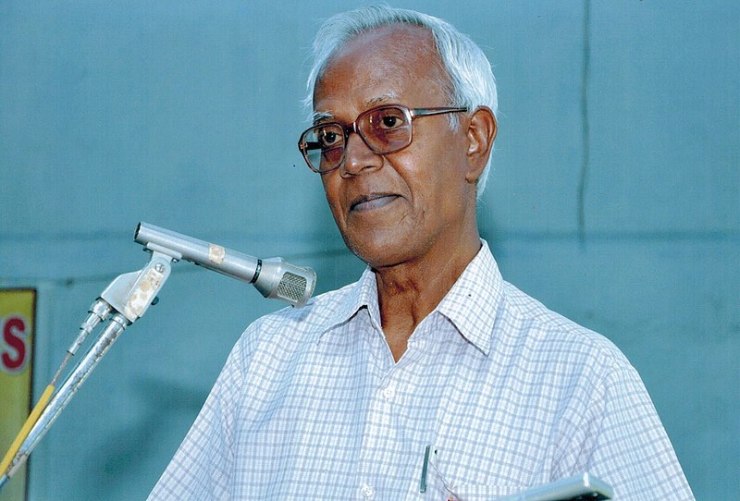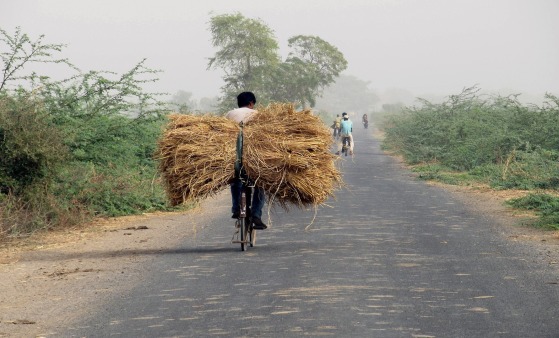
The U.S. Commission on International Religious Freedom has urged the Biden administration to “hold the Indian government accountable” for the death of 84-year-old Jesuit priest and human rights defender Fr. Stan Swamy.
Condemning “in the strongest terms the deliberate neglect and targeting by the government of India that led to the death of” the priest, USCIRF Chair Nadine Maenza urged “the United States to hold the Indian government accountable and to raise religious freedom concerns in the U.S.-India bilateral relationship.”
Swamy died last Monday, days after suffering a cardiac arrest at Tajola Central Prison in May. He was later put on a ventilator at a private hospital in western Mumbai city due to his deteriorating health.
The priest was suffering from Parkinson’s disease and had contracted COVID-19 in pre-trial detention.
“Despite international concern and urgent pleas for bail on medical grounds, Indian officials and the courts denied Swamy bail and timely medical care,” USCIRF said.
He was arrested last October and charged under the Unlawful Activities (Prevention) Act, or UAPA, for suspicion of ties to organizations accused of instigating violence in Maharashtra state in 2018. Officials “used UAPA and other statutes to detain advocates, the media, and academics, including religious minorities.”
Fr. Jerome Stanislaus D’souza, the president of Jesuits in India, issued a statement.
“Stan worked to light the world and do away with injustice. The government may have succeeded in snuffing his life out, but his spirit will continue to inspire,” D’souza said, according to The Washington Post.
Swamy had cited the inhumane treatment he was receiving in prison, including being denied a sipper to drink water, in the several letters he wrote.
“His arrest by the NIA, without proper evidence, his bail pleas that were repeatedly denied despite his deteriorating health, and the inhumane treatment he received while in prison are all reminders of the shocking violations of basic human rights that remain a regular occurrence in India,” Scot Bower, chief executive of the U.K.-based Christian Solidarity Worldwide, said in a statement.
CSW quoted Fr. Cedric Prakash, a Jesuit priest and human rights activist in India, as saying that Swamy championed the cause of the indigenous people.
“He did all he could to ensure that the natural resources (water, forest and land) which are rightly theirs, which are being exploited by the powerful, the rich and the mining mafias, were not illegally snatched away from them," said Prakash. "Because of this, he paid the price. I personally believe that Father Stan will never die. He has finished his pilgrimage here on Earth, but he will continue to live in the hearts of thousands of people and we will see many more Father Stans springing up for the sake of India.”
The Washington Post noted that India’s anti-terror law, amended in 2019, allows the government to designate an individual as a terrorist and detain people for up to six months without producing any evidence. Further, the accused can subsequently be imprisoned for up to seven years. “Critics have called the law draconian, and accuse Prime Minister Narendra Modi’s government of using it to mute dissent.”
Church groups and civil society leaders in India protested against the Jesuit priest's arrest on charges of being a Maoist or extreme Marxist. The Catholic Church in India said he was being punished for protecting the rights of aboriginal people.
Two days before his arrest, Swamy had said in a video message posted on YouTube that he feared he would be arrested because he fought against the government's indiscriminate arrest of thousands of young aboriginal people and local settlers who question big business projects that take away their land.
“During the past three decades I have tried to identify myself with the Adivasi (aboriginal) people and their struggle for a life of dignity and self-respect,” Swamy said. “As a writer, I have tried to analyze the different issues they are faced with. In this process, I have clearly expressed dissent with several policies, laws enacted by the government in light of the Constitution.”
The Indian government is increasingly being seen as heavy-handed.
Last June, New Delhi denied entry visas to representatives of the USCIRF who had planned to investigate reports of persecution of Muslims and Christians following the release of its report that designated India as a “Country of Particular Concern.”
Courtesy of The Christian Post.




